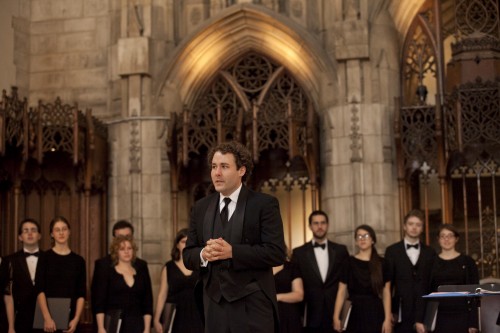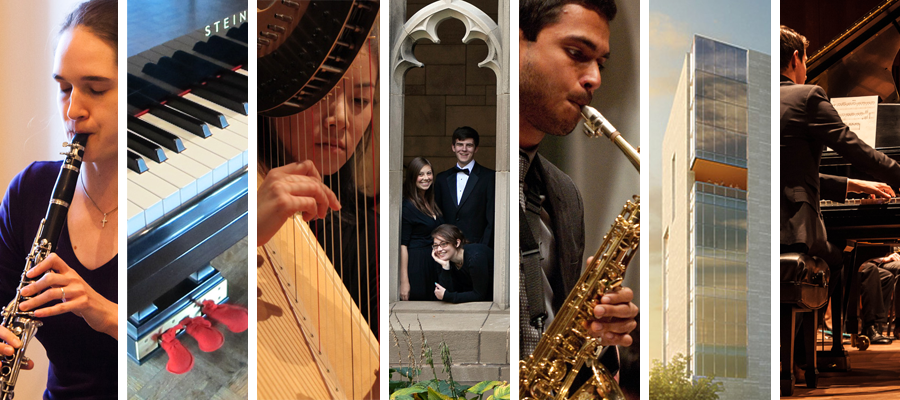 James Kallembach, Director of Choral Activities
James Kallembach, Director of Choral Activities
This coming Saturday April 20th, the Rockefeller Chapel Choir and the UChicago Motet Choirs join together in the last of the season’s Quire & Place concerts. The concert will feature songs of mourning, including Mozart’s Requiem (his haunting, final work), in honor of those who have lost their lives to violence on our streets and in our public schools. Please tell me more about the repertoire on this concert? How does this music in particular serve to honor the victims of violence in our society?
Mozart’s Requiem is tragic on two levels. First, it is a sincere expression of mourning, told through the texts of the Catholic rite. Second, it is well known that Mozart struggled, and, indeed, failed to finish the work. It had to be completed upon his death. This must have been particularly painful for Mozart, as his wife was depending on this commission to secure funds after Mozart passed away. The commission was fulfilled, in the end.
The first half of the program is titled “Fragments of Mourning.” Mozart’s Requiem is a fragment, that is, an uncompleted sketch, and it will be performed in a manner that accentuates this fact. The first half takes movements and fragments from more recent composers and puts them in a sort-of “missa eclectica.” These short unaccompanied works are all “fragments,” in a sense. Furthermore, each one of these movements reflects the theme of “mourning” in a different sense. That is, the mourning of specific persons, the mourning of tragic events, and so on. There are single movements from works, and a fragment of Henry Purcell that is completed by the modern Swedish composer Sven-David Sandström. In addition, very recent music of composer Ted Hearne speaks more directly to violence in schools such as those on the South side of Chicago. One movement by Hearne is a quote from an interview with David Simon, creator of the television series “The Wire.” This television series deals directly with the issues in public urban schools. Another movement by Hearne is a translation of a South African protest song, and the music is his own unique spin on this genre. Continue reading
